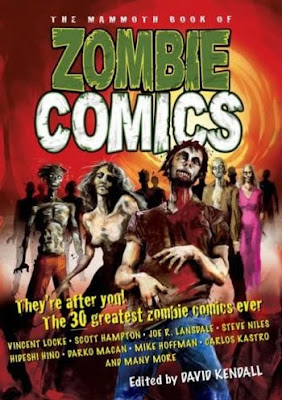Let's backtrack for a minute, and talk about what made the show so great:
If you're not familiar with "Smallville", the basic premise of the show is it is a "no tights, no flights" story about the early days of Clark Kent living in Smallville, Kansas before he becomes Superman. As the series begins, Clark is an awkward and slightly geeky farm boy who is dealing with the typical adolescent problems (unrequited crush on the girl next door, high school bullies, etc.) when he starts discovering that he's "different" -- actually, he seems to be superhuman. As he explores his powers he confronts his parents and gradually learns of his mysterious origins. According to this interpretation, baby Clark was an alien who landed on earth, bringing with him a "meteor shower" that ravaged the little farm town in Kansas and changed the lives of everyone there. It eventually becomes apparent that a side effect of the "meteor rocks" (kryptonite) is it can mutate anyone who has been exposed to them, so the little town of Smallville has a disproportionate number of freaks. Naturally this all gives Clark an enormous guilt complex, intense feelings of alienation (no pun intended!), a sense of responsibility and of course a new mutant powered villain to fight every week.
The early seasons of the show were, frankly, beautiful. Just as Clark was in the full bloom of youth, every location in Smallville was bursting with lush colourful flowers, cozy pastoral farm scenes, small town life right out of Norman Rockwell and of course attractive young people. Well, plus meteor freaks. Still, there was something so compelling about those early years of the show, regardless of whether you're a comic book geek or not. And if you were familiar with the comic, watching the drama unfold was all the more delicious: how did Clark and Lex Luthor become enemies? How did his romance with Lana Lang start, and why did they break up? When is Clark going to start wearing glasses...?
Of course, "Smallville" was always the type of show that required a HUGE suspension of disbelief. Sometimes it was extremely far-fetched and absurd (the Kent family must own that room in the hospital because one of them was admitted every week!). Sometimes the acting or the writing was bad (whenever the story involved "red kryptonite" it got cringe-worthy!) and the occasional episode could be embarrassing to watch (remember Lana in the vampire sorority?) Again, I admit it was never high drama, but it was great escapist fun. And in it's own way it could be dramatic and touching. Try watching Jonathan Kent's funeral and not feel sad. Perhaps the greatest strength of "Smallville" was in its character development. "Smallville" was the first time I ever considered Superman to be an interesting character: a person with actual flaws, feelings and emotional baggage. And watching Lex Luthor was the "nature VS nurture" debate in motion: was he just born with evil genes, or did years of no one believing in him turn him into a monster? Pretty interesting stuff to attempt in a fluffy teen drama.
As with all shows that drag on long past their "best before" date, "Smallville" changed, and evolved into something very different from how it started. Every season had it's gold and it's dogs. I'm not sure I can exactly pinpoint where the show began to unravel for me. The developers/creative force behind the show, Alfred Gough and Miles Millar, left the series in 2008, hinting around at a struggle to maintain their creative vision of the show. Add to it, both Lex Luthor and his father Lionel (to me, the most interesting characters) were killed off. Clark and friends are all grown up now and working in Metropolis (begging the question, how is it really "Smallville" anymore?). The "no tights, no flights" rule has gone out the window with the introduction of a myriad of DC characters (Green Arrow --in costume-- is now a series regular, and there have been appearances by various others from the long-johns set). Generally, the show seems to have less & less basis in reality every time I see it, and as much I enjoy fantasy I do need some shred of credibility.
"Smallville" season 8 is out on DVD and for the first time in the entire series run I'm not in a great hurry to run out & buy it. (DVD has been my only access to the show, apart from sporadic episodes I've seen at other people's houses). Based on the few snippets I saw of season 8 the show has become more "soap opera" than drama. Still, the nostalgic part of me is ready to plunk down $40 for it because I'd love to recapture that old feeling the series used to give me. Right now, I'm torn... my heart says "yes" but my head knows better!


